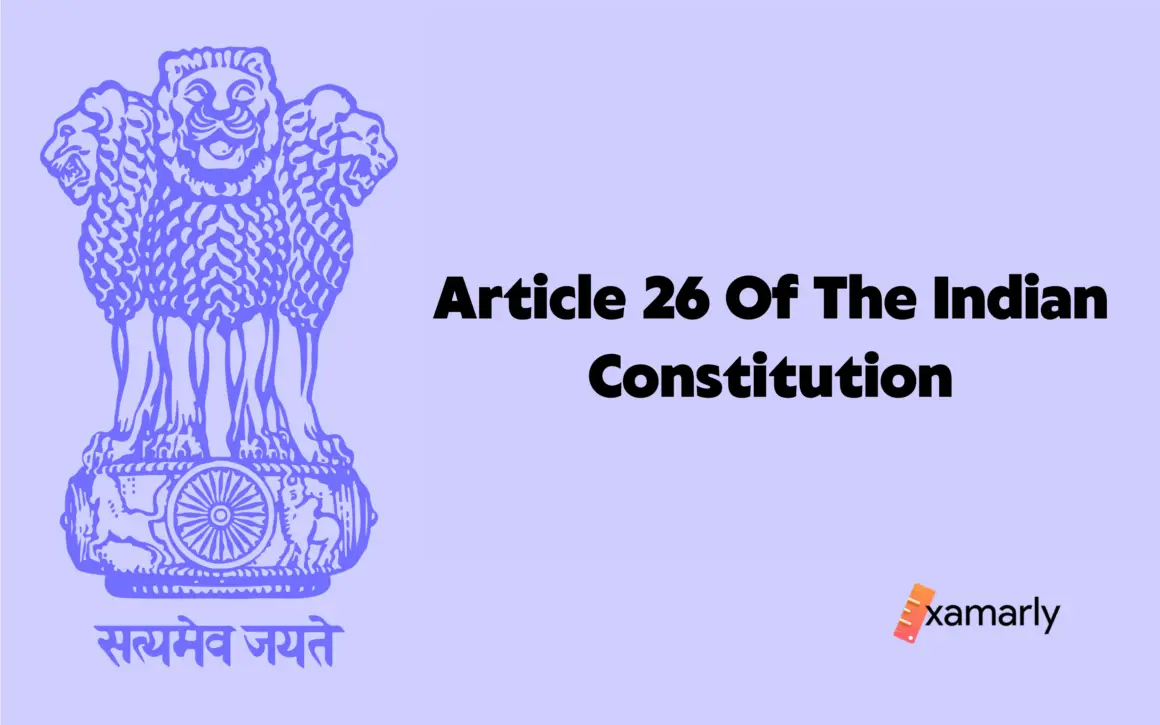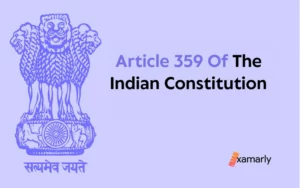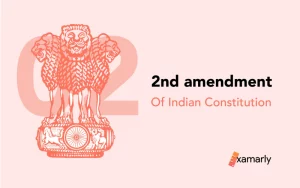India is a secular nation that witnesses the practice of various religions by its citizens. The diversity in the country allows these religions to co-exist. The Indian Constitution shoulders the responsibility of protecting the religious sentiments of its people. All religions are treated equally and with the same amount of respect.
The fundamental rights are held in Part III of the Indian Constitution. Numerous provisions have been put in place that support the safe and healthy inclusion of religious activities in society. Article 26 of the Indian Constitution is one such constitutional provision that relates to the right of freedom of religion. Let us gain a detailed understanding of Article 26 of the Indian Constitution through this article.
- Article 26: Freedom To Manage Religious Affairs
- Explanation Of Article 26 Of The Indian Constitution
- Provisions In Article 26 Of the Indian Constitution
- Features Of Article 26 Of The Indian Constitution
- Meaning Of 'Denomination' In Article 26 Of The Indian Constitution
- Clause 'A' Of Article 26 Of The Indian Constitution
- Clauses 'C' And 'D' Of Article 26 Of The Indian Constitution
- Cases Related To Article 26 Of The Indian Constitution
- Summing Up
- FAQs
Article 26: Freedom To Manage Religious Affairs
The text for Article 26 in the Indian Constitution states ” 26. Freedom to manage religious affairs. Subject to public order, morality and health, every religious denomination or any section thereof, shall have the right-
(a) to establish and maintain institutions for religious and charitable purposes;
(b) to manage its own affairs in matters of religion;
(c) to own and acquire movable and immovable property; and
(d) to administer such property in accordance with law.”
Explanation Of Article 26 Of The Indian Constitution
- Article 26 of the Indian Constitution facilitates the liberty of managing matters of religious interest.
- This article defines certain outlines for every religious denomination or any section that is allowed to enjoy religious rights. However, this privilege must be made use of in a way that respects public order as well as morality and health.
- A religious group has the freedom to create and operate institutions for religious and charitable purposes under clause (a) of Article 26. The creation of an educational institution falls under the definition of “charitable purpose.”
- As a result, Article 25(1) deals with the freedom of conscience. It also grants the right to practice, proclaim, and spread religion. It might be claimed that Article 26 complements Article 25.
- Article 26 only refers to a certain religious group and does not address the rights of individuals. It relates to any denomination of any religion. In the same way, Article 25 applies to everyone, regardless of whether they practice a majority or minority religion.
- The rights of religious denominations or their sections are covered by Article 26. This article safeguards collective religious freedom.
Related – Freedom to manage religious affairs.
Provisions In Article 26 Of the Indian Constitution
Article 26 of the Indian Constitution stipulates some rights for every religious group. These rights are subject to ethics, health, and civil order. It comprises four clauses.
- Clause (a) provides the right to create and support institutions with religious and philanthropic intent.
- Clause (b) talks about the freedom to conduct its own affairs when it comes to religion.
- Clause (c) deals with the ability to obtain property, both movable and immovable.
- Clause (d) is concerned with the authority to manage such property in a legal manner.
See Also – Article 28 Of The Indian Constitution
Features Of Article 26 Of The Indian Constitution
- Article 26 of the Indian Constitution was finalized from Draft Article 20. It was debated and adopted on December 7, 1948.
- It accorded religious denominations and sections certain freedom. Handling their religious matters, institutions, and property was part of this freedom.
- Some of the features of Article 26 of the Indian Constitution have been briefly discussed below.
Meaning Of ‘Denomination’ In Article 26 Of The Indian Constitution
- The court recognized the meaning of the word “denomination” for the purpose of Article 26. It did so in the case of Commr H.R.E. v Sri Lakshmindra Thirtha Swamiar of Sri Shirur Mutt.
- It can be said that a ‘religious denomination’ is a group of people united together under the same name. In other words, a religious sect or body with a shared religious faith and organization and is identified by a distinguishing name.
- They also have the right to absolute autonomy when it comes to choosing the rites and ceremonies that will rule them. No outside agency has the right to meddle in their affairs.
Clause ‘A’ Of Article 26 Of The Indian Constitution
- With regard to issues of religion, a religious denomination has inherent rights to administer its own affairs. This is guaranteed by the first clause of Article 26 of the Indian Constitution.
- The management of religious matters extends beyond doctrines and beliefs. It includes acts concerning the pursuance of religion. This helps to ensure that rituals, observances, ceremonies, and modes of worship which are seen as an essential component of any religion are maintained.
- According to Article 26(b), a religious institution or denomination has the absolute right to decide what rituals and ceremonies should be practiced as part of a religion. There is no external authority that has the right to influence such decisions.
Clauses ‘C’ And ‘D’ Of Article 26 Of The Indian Constitution
- Any religious sect is guaranteed the right to acquire, hold, and manage property in line with the law. This is provided under both clauses (c) and (d) of Article 26 of the Indian Constitution.
- The right of a religious organization to maintain a property is based on a different tenet than the freedom to conduct religious matters independently.
- The right to manage religious affairs on its own is a fundamental right. No legislation may restrict it even if it interferes with public morality, health, or order. However, the right to administer property by a religious group is subject to legislative laws. If it simply involves the management of property owned by a religious organization or denomination and is not a ‘matter of religion’, it is governed by legislative laws. Therefore, clause (b) of Article 26 will not be applicable in this situation.
- Under clauses (c) and (d) of Article 26, there are no changes concerning the religious denomination. Neither any additional rights nor any obligations are put in place for it. These clauses simply protect the rights that these denominations currently hold. They also guarantee its continuation to them.
Cases Related To Article 26 Of The Indian Constitution
Let us now look at some cases which revolved around Article 26 of the Indian Constitution.
Bramchari Sidheshwar Bhai V. State Of West Bengal
- In this case, the Ram Krishna Mission sought to establish itself as a non-Hindu minority. Its members were to be considered Hindus in the context of marriage and inheritance. However, its members wanted to be recognized as non-Hindus with respect to religion.
- This would undoubtedly imply that they are granted the status of legal Hindus. Their religious identity would be of non-Hindus. This was somewhat similar to Sikhs and Buddhists.
- The Supreme Court passed its judgment in this regard. It declared that followers of Ram Krishna cannot claim to be members of the minority of Ram Krishna. The Hindu religion and the Ram Krishna religion are somewhat associated with each other. It does not belong to a religious minority. Therefore, the fundamental right to create and manage educational institutions functioning under Ram Krishna Mission cannot be asserted by it. It is covered under Article 30 (1) of the Indian Constitution.
Azeez Basha V. Union Of India
- In this case, the Aligarh Muslim University Act, 1920, underwent certain changes. These revisions were made in 1951 and 1965.
- The petitioner objected to these changes on the grounds that they violate the fundamental freedom provided by Article 30 to establish and oversee educational institutions. In addition to that, there was a violation of the Muslim minority rights under Articles 25, 26, and 29.
- The Supreme Court ruled that Muslim minorities could establish universities before 1920 without any restrictions. The Aligarh Muslim University cannot claim to have been founded by the Muslim Community. It was established by central legislation under the legislation (Aligarh Muslim University Act, 1920) and not by the Muslim minority.
Summing Up
A person is free to invest in secular activities but must not engage in any social misconduct through religious activities that could jeopardize the ongoing peace, commit any immoral act, or engage in any other activity that is prohibited by the state. No discrimination on the grounds of religion is acceptable by law. Inclusivity is extended to people following minority religions.
Constitution makers laid down the framework for the Indian Constitution and dealt with religious matters with utmost care for social welfare. This was done as a precautionary measure to avoid any unnecessary conflict between the state and its subjects on the grounds of religion.
Article 26 is an initiative towards providing liberty for managing matters of religious interest. It is dependent on public order and morality and health. Every religious denomination or section is entitled to set up and manage institutions for religious and philanthropic activities, manage religious issues independently, possess movable as well as immovable property, and follow the law to oversee this property.
FAQs
Q. What is Article 26a of the Indian Constitution?
Article 26a provides for granting a right to a religious group for the creation as well as maintenance of institutions. This is done for the propagation of religion and charity.
Q. What is the purpose of Article 26?
Article 26 revolves around advocating for the freedom needed for managing religious affairs. This article ensures that every religious denomination has certain rights. These rights are concerned with morality and health and public order.
Q. Article 26 of the Indian Constitution was finalized from which Draft Article and when was it adopted?
Article 26 of the Indian Constitution took its form from Draft Article 20, which was adopted on December 7, 1948.






